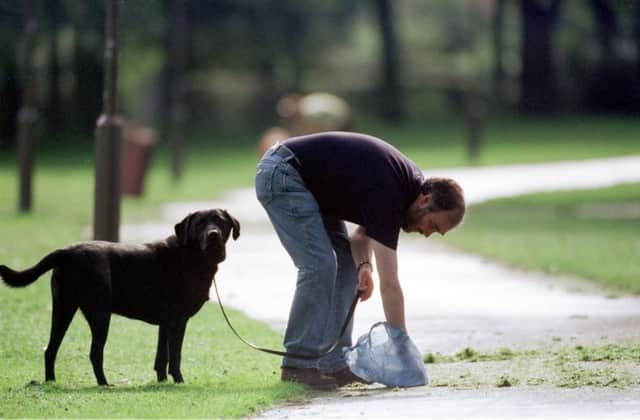Bank account freeze threat to careless dog owners


Dundee City Council says it needs to crack-down on irresponsible owners who fail to clean up after their animals
The local authority is to open talks with the Procurator-Fiscal to discover whether it can go after the bank accounts of those who fail to pay fines.
Advertisement
Hide AdAdvertisement
Hide Ad• READ MORE: Pet owners after Aberdeen dog dies of rare disease
Bank arrestment is already used to recover major debts, such as rent arrears, but is rarely used in connection with smaller sums.
As the fixed penalty for failing to clean up after your dog increases to £80, however, such measures may be viable.
The action is being explored in the wake of figures which show that almost 60 per cent of dog fouling fines issued over the past two years remain unpaid – as do the vast majority issued in 2012, 2013 and 2014.
Councillors have spoken of receiving complaints on a regular basis about those who fail to “bag it and bin it”. Some have raised concerns that the problem could escalate as the council cuts back on street cleaning and green space services to make budget savings.
• READ MORE: Free dog poo bags axed as some used for nappies
Councillor Fraser Macpherson, who represents the city’s West End ward has raised concerns over dog fouling describing it as “unwelcome, unhygienic and anti-social” and saying tougher action is needed.
“Recovery via bank arrestment is an obvious route to consider where a fixed penalty is ignored and the increase in the amount of the fixed penalty to £80 not only acts as a better deterrent against dog fouling but also gives local authorities more options to ensure full recovery of penalties raised,” he said.
Advertisement
Hide AdAdvertisement
Hide AdIn a letter to councillor Macpherson, Dundee City Council’s head of environmental protection, Gary Robertson, said: “We shall be approaching the Procurator-Fiscal’s office to discuss and establish if there are any other options open to us as regards seeking to secure a conviction against non-payment.”